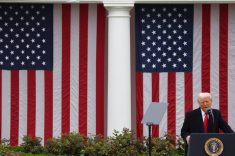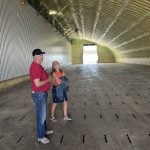Ottawa | Reuters — Canada’s two main opposition parties on Wednesday suggested they could move to delay ratification of a new continental trade pact, accusing the Liberal government of botching revisions to the treaty.
Such a move would embarrass Prime Minister Justin Trudeau, who has vowed that Parliament will quickly approve the U.S.-Mexico-Canada Agreement (CUSMA). Senior officials for all three nations formally approved a series of amendments on Tuesday for the pact meant to replace the North American Free Trade Agreement (NAFTA).
Trudeau lost his majority in the House of Commons in an October election and needs the support of other parties to quickly push through ratification. Opposition legislators can engage in procedural maneuvers to delay the process.
Read Also

U.S. livestock: Feeder cattle hit contract highs on tight supply
Chicago | Reuters – All Chicago Mercantile Exchange feeder cattle futures and most live cattle futures hit contract highs on…
The Conservative Party complained the Liberals had not consulted them at all in the final stages of negotiations on the amendments. Conservative legislator Leona Alleslev told the House that Trudeau had “sheepishly accepted” the terms put forward by the U.S. and Mexico.
“When will the prime minister realize that here at home he doesn’t have control of Parliament and he needs the support of opposition before finalizing major agreements?” she said.
Trudeau responded by saying he was sure all legislators would back the deal.
That is very unlikely since the separatist Bloc Quebecois promised to vote against the treaty on the grounds that it did not protect Quebec’s powerful aluminum industry.
The CUSMA deal calls for 70 per cent of the steel and aluminum used in auto production to be produced in North America, but specifically bans the use of semi-finished steel from China and elsewhere. There is no such provision for aluminum.
Bloc leader Yves-Francois Blanchet called the deal a catastrophe for Quebec’s aluminum workers and accused Trudeau of abandoning the industry.
Trudeau countered that the deal was good news, noting Quebec would produce much of the aluminum used in North American auto plants.
Deputy Foreign Minister Chrystia Freeland, who led Canada’s negotiating team, earlier told reporters she had invited her U.S. counterpart “to have a conversation with Canada about what we can do to support the North American aluminum industry.”
— David Ljunggren is Reuters’ political correspondent in Ottawa.
















